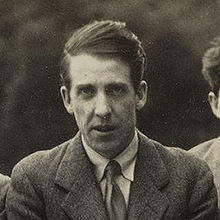The page of Turner, W. J., English biography
Biography
Walter James Redfern Turner (13 October 1889 – 18 November 1946) was an Australian writer and critic.
Born in Melbourne, the son of church musician, he was educated at a technical college, but left for England to pursue a career in writing. There he met and befriended a number of literary intellectual figures, including Siegfried Sassoon, Virginia Woolf, Vita Sackville-West, and Lady Ottoline Morrell (the caricature of her in his book The Aesthetes ended their friendship). During the period from the First World War until the mid 1930s, he was known primarily as a poet.
William Butler Yeats once stated that Turner's poetry left him "lost in admiration and astonishment", and Yeats included poems of Turner's in his Oxford Book of Modern Poetry. But today, although Turner wrote a number of volumes of poetry, several novels, and plays, his reputation rests on his musical biographies of Mozart, Beethoven and Berlioz. These are written in pithy, elegant prose with great passion and penetration about these figures, whom he revered. His Mozart in particular has been reprinted many times in the 70 years since it was first published, and remains the best single volume to recommend for the general reader. Some of his musical articles for New Statesman and other journals were reprinted in Music and Life, Facing the Music, Musical Meanderings, and Variations on the theme of Music. These are filled with iconoclastic views, diverging widely from the primarily bland tone of most musical criticism of its time (or indeed of most times).Turner was a close friend of the pianist Artur Schnabel, about whom he frequently wrote, and with whom he frequently went hiking. He was a champion of Arturo Toscanini's conducting, which was for him a revelation in structure and expression. During the Second World War, he edited a number of volumes about English culture. He died prematurely of a cerebral thrombosis.
(Editor of this page: P. T.)



